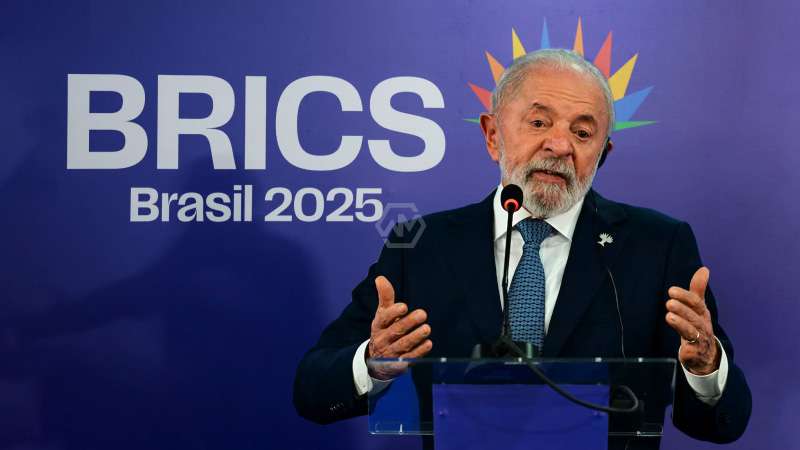- Trump threatens 10% tariffs on BRICS nations for “anti-American” policies.
- Lula da Silva and Ramaphosa condemn the U.S. for weaponizing trade.
- BRICS reaffirms plans to reduce reliance on the U.S. dollar.
Donald Trump’s latest declaration of a 10% tariff on BRICS countries has drawn strong international rebuke, particularly from Brazilian President Luiz Inácio Lula da Silva.
South Africa’s President Cyril Ramaphosa also criticized the threat, labeling it an attack on international cooperation and economic sovereignty.
Trump’s Tariff Threats Ignite Global Pushback From BRICS Nations
The controversy comes at a critical juncture for BRICS, which now includes ten member nations following its recent expansion. One of its most urgent objectives is to reduce the global economy’s dependence on the U.S. dollar through regional payment systems and multilateral trade platforms. Lula’s remarks suggest that this effort is not merely aspirational, but already underway. He reiterated that BRICS will proceed “step by step” in selecting an alternative currency for international trade.
Trump’s comments, shared via Truth Social, also included a forceful defense of Jair Bolsonaro, Brazil’s former president, who is currently on trial for allegedly attempting a coup in January 2023. Trump condemned the proceedings as a “witch hunt,” likening Bolsonaro’s legal woes to his own and accusing Brazilian institutions of persecuting political opponents. Bolsonaro, now ineligible to run until 2030, thanked Trump for his support.
Despite the inflammatory rhetoric, most BRICS leaders have opted for a measured response. China, embroiled in its own tariff dispute with the U.S., issued a calm statement warning that trade wars benefit no one. Russia’s Foreign Minister Sergei Lavrov accused the U.S. of abusing its global financial position, a claim that echoed long-standing complaints from the Global South about Western-dominated economic institutions.
The BRICS joint declaration also addressed broader geopolitical tensions, including the inclusion of Iran and its ongoing conflict with Western powers. Although the statement avoided direct confrontation with the U.S., it hinted at growing dissatisfaction with American military and economic hegemony. The bloc called for reforms to global governance structures, including the World Trade Organization, in line with a multipolar vision of global leadership.
As Trump escalates his rhetoric, BRICS appears more determined than ever to pursue economic autonomy and challenge unilateralism in global trade.
“When trade stops, war begins.” — Jack Ma
This quote underscores the danger of weaponizing trade, a risk highlighted by the ongoing U.S.-BRICS tension.



